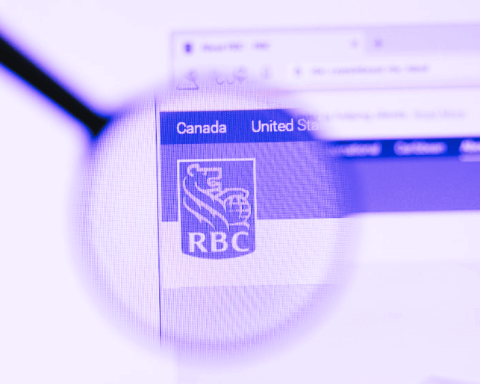There’s something about a global pandemic that radically cements trends. Locking millions of Canadians inside their homes for much of the year has a way of propelling the shift toward all things digital. It’s also catalyzing support for initiatives that vow to treat the planet, and the humans on it, with more consideration.
All of which has created the perfect petri dish for responsible robo-advisors. More millennials are looking to invest, and a surge of digital platforms are offering up automated, algorithm-driven investment services to help them do just that. Canada’s top robo-advisors say they’ve experienced double-digit growth since the start of the pandemic. Wealthsimple’s client base is up 24%. RBC’s Rajan Bansi called 2020 a “record year” for his bank’s InvestEase app – with RBC’s responsible portfolio a key driver of that growth.
But while environmentally and socially aligned investments are exploding around the world (constituting 40% of global investments), only a handful of Canadian robo-advisors offer “responsible” investing solutions.
If the hippies over at JPMorgan investment bank are right, Canadians are losing out: “Virtually all ESG index funds [those that assess environmental, social and governance factors] outperformed their conventional benchmarks because they were underweight in energy, the worst-performing sector so far this year.”
At this point, anyone who’s particular about aligning their wallet with specific values – like, say, zero waste or animal welfare – isn’t likely to find much comfort in the virtual hands of a robo-advisor. Good Investing’s Tim Nash explains: “Robo-advisors are elegant in their simplicity and offer responsible investors the best way to ‘set it and forget it.’ Unfortunately, their responsible portfolios are ‘one size fits all’ and won’t go far enough for some people.”
If that’s you, you’re better off going the DIY route so you can customize where your retirement savings go, based on your own unique priorities and values. In the meantime, here’s how three of Canada’s top robo-advisors with socially responsible investment (SRI) options stack up.
Wealthsimple
Arguably the hippest of the robo-advisors (just scroll through the lengthy list of influencers in its Instagram feed), Wealthsimple prominently promotes socially responsible investing as its top option for “investing on autopilot.”
Assets under management (AUM): $5 billion
Minimum investment: $0
Total annual fees: 0.62%
★ ★ World-changing impact: Wealthsimple has significantly beefed up screening on its SRI portfolios since our first robo ranking in 2019. It now boots out oil/gas/coal companies and other high-carbon emitters, along with weapons-makers and tobacco companies. It also screens out companies with few women on their boards. So it’s avoiding a lot of the worst companies, but to improve its score here, it needs to do lots more investing in sustainable solutions.
★ ★ Customization: Wealthsimple encourages you to “invest in your values,” but those values are limited to “halal” or the general “socially responsible” option.
★ ★ ★ ★ Transparency: Head to the help centre and you’ll find the full list of company names in its basket of stocks. Easy for the picky investor to peruse.
★ ★ How returns compare to business-as-usual: Its site used to have helpful graphs spelling out how SRI investments have fared compared to “traditional investors.” Today, graphs in the help centre will tell you that the balanced SRI portfolio has grown by a cumulative 34.5% (net of fees) since it was launched on March 24, 2016 (to November 30, 2020). But nothing about how it fared in relation to conventional portfolios.
★ ★ ★ Green cred: Since Wealthsimple stopped relying on external funds, you’ll no longer find the likes of Chevron and Imperial Oil in your portfolio – a relief for anyone concerned about the climate crisis. But zero-wasters aren’t going to dig that Keurig and Coca-Cola are top holdings, and animal lovers are bound to cringe at the 0.59% invested in Canada Goose.
RBC InvestEase
The only Big 5 bank with an SRI robo-advisor. RBC InvestEase’s “responsible investing” option promises to “help drive positive change by investing in companies aligned with your values.”
AUM: N/A
Minimum investment: $100
Total annual fees: 0.66%
★ World-changing impact: Negative screens are more social than environmental: no tobacco, controversial weapons, civilian firearms or companies involved in “very severe controversies” (Wells Fargo was recently booted out for its account fraud scandal). Beyond that, RBC says it chooses companies that “score most favourably in the assessment of environmental, social and governance risk factors,” but to boost this score it’ll need to really ramp up investments in sustainable solutions.
★ Customization: As with most robos, algorithms personalize to risk preference but not to values, other than choosing between “responsible” and, well, not.
★ ★ Transparency: If you dig into the FAQs, you’ll find a list of the ETFs (exchange-traded funds) RBC invests in. They now share the top 10 holdings of those ETFs, but you’ll have to rummage around on other websites to find the full list of companies that make up those ETFs.
★ How returns compare to business-as-usual: InvestEase “believe[s] companies that effectively manage ESG risks over the long-term could achieve superior financial results versus their less-effective peers,” but no evidence is provided. When contacted, RBC reps said that as of December 10, 2020, “the 100% equity portfolio outperformed its standard peer by approximately 100 bps.” Why not post that?
★ Green cred: InvestEase says its portfolios are invested in companies that score the highest on ESG factors. But its “iShares ESG Aware MSCI Canada ETF” banks on a number of Canadian oil, gas and pipeline companies, including Keystone-pusher TC Energy and Imperial Oil. To go fossil-free, skip the robo and ask RBC for its fossil-free ETFs.
Questwealth Portfolios
This popular robo comes courtesy of Questrade Wealth Management, Canada’s largest indie online brokerage firm. It’s had a socially responsible investing option since late 2018.
AUM: $20 billion (Questwealth Portfolios and Questrade)
Minimum investment: $1,000
Total annual fees: 0.38%
★ ★ World-changing impact: Of the bunch, Questwealth invests the most in cleantech solutions. However, there are no negative screens to filter out, say, weapons, tobacco or oil companies, so you will find all three in here. Over half (57%) of its small-holdings account is in a “low carbon” ETF whose holdings include Kinder Morgan, Raytheon and Lockheed Martin.
★ Customization: Besides adjusting for risk preference, SRI investors can opt for a small- or large-holdings account, but you can’t opt for fossil-free, for instance.
★ ★ Transparency: One improvement since our 2019 ranking: ETF names are now listed front and centre on the home page, but you’ll have to look elsewhere to discover which companies those ETFs are invested in.
★ ★ How returns compare to business-as-usual: Front-page graphs reveal that the SRI portfolios have returned anywhere from 12 to 22% since inception, but there’s no comparison to the broader market. Reps say that in the past year, the SRI portfolios have outperformed the standard portfolios. It would be helpful if this comparison was shared publicly.
★ ★ Green cred: While its SRI small-holdings account puts 27% into a solid cleantech fund, overall its portfolios include a number of fossil fuel and pipeline companies. The presence of Jantzi Social Index ETF only compounds the problem, with some questionable holdings like Imperial Oil (Canada’s Exxon subsidiary).
Adria Vasil is the managing editor of Corporate Knights. She’s also the author of the bestselling Ecoholic book series.
Correction: Wealthsimple’s world-changing score has been updated.







